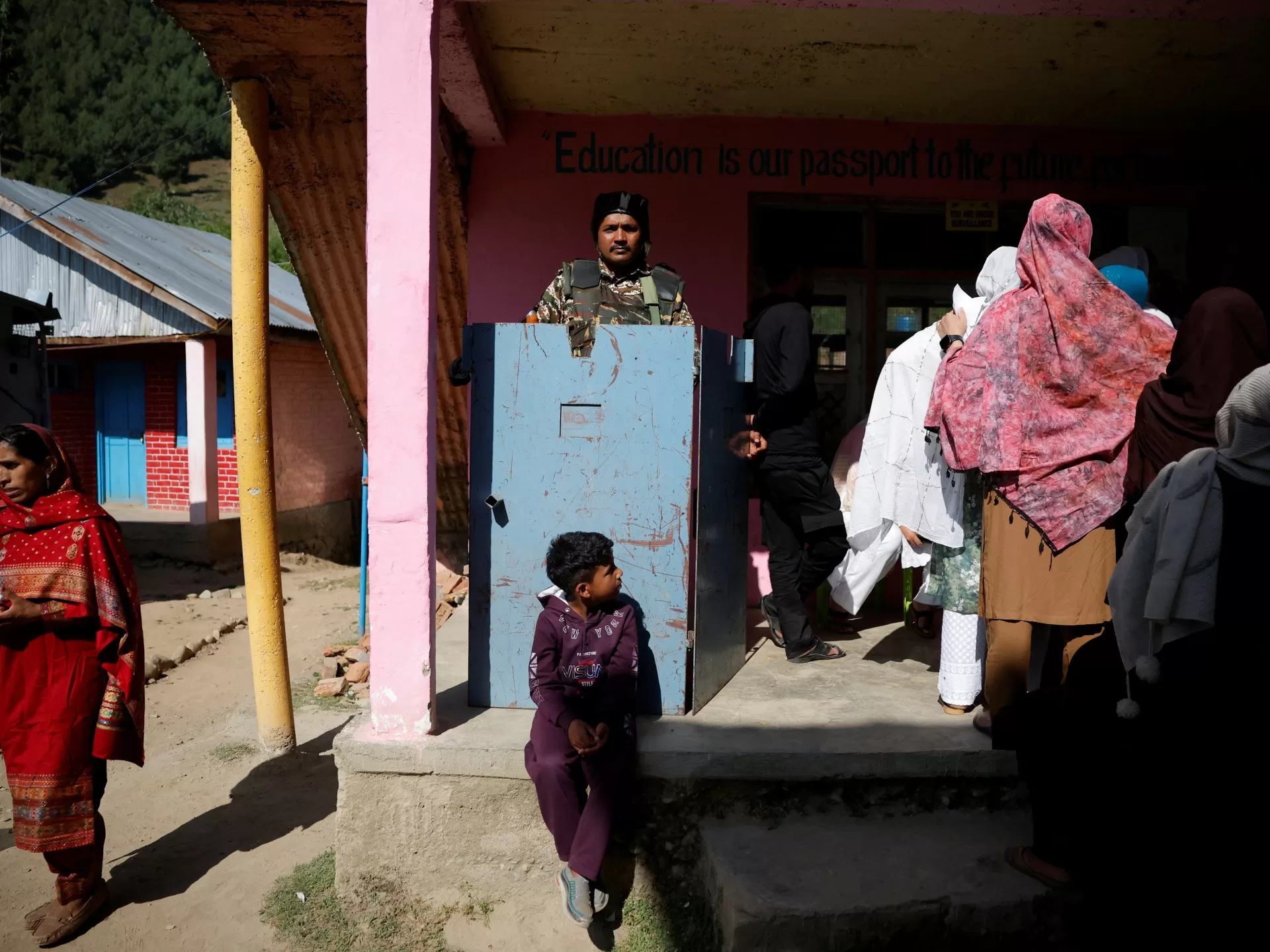Nearly nine million people are registered to vote in the polls from September 18 for the 90-member legislative assembly.
Indian-administered Kashmir will hold local elections starting on September 18, according to the Election Commission, the first regional polls there in a decade and five years after New Delhi scrapped the region’s special autonomy.
“After a long gap, elections are due and will be held in Jammu and Kashmir,” Chief Election Commissioner Rajiv Kumar told reporters in New Delhi on Friday.
Voting for the region’s assembly will be held in three stages between September 18 and October 1, while the vote counting is set for October 4.
Nearly nine million people are registered to vote for the 90-member legislative assembly, the election panel said.
Some see the polls as a critical step in returning the vote to the people to choose their leaders.
India’s only Muslim-majority region, Kashmir has been at the heart of 77 years of animosity with neighbouring Pakistan since the two nations’ independence from colonial rule by Britain.
The larger Kashmir region is divided between India, Pakistan and China. The part ruled by India enjoyed a special status that was revoked by Prime Minister Narendra Modi’s government in 2019.
The decision to hold elections follows a December order by India’s Supreme Court that rejected petitions challenging the revocation of Kashmir’s special status and set a deadline of September 30 for holding provincial polls.
Modi says his 2019 decision brought normalcy to Kashmir after decades of bloodshed, and that the special status allowed it a measure of administrative autonomy.
But many Kashmiris in the Indian-administered areas have promised to fight the Indian government.
India and Pakistan both claim Kashmir in full but rule it in part after having fought two of their three wars over the region.
Tens of thousands of people have been killed in an armed rebellion against Indian rule in the region, although the violence has tapered off in recent years.
India has blamed Pakistan for supporting armed groups, with a spate of recent attacks targeting the Hindu-dominated Jammu area more than the Muslim-dominated Kashmir Valley.
Pakistan denies the charges and says it only provides diplomatic and moral support for Kashmiris seeking self-determination.
Elections in Kashmir have been targeted by armed groups in the past and also witnessed low voter turnout. However, the territory recorded its highest turnout of 58.46 percent in 35 years in parliamentary elections held in April and May this year.
The Modi government and election officials said this reflected the faith of Kashmir’s voters in the democratic process.
Some hardline separatists, who demand independence for Kashmir or its merger with New Delhi’s archrival Pakistan, oppose elections because they see it as lending validity to Indian control. They demand a referendum to decide the future of the region of some 12 million people.
